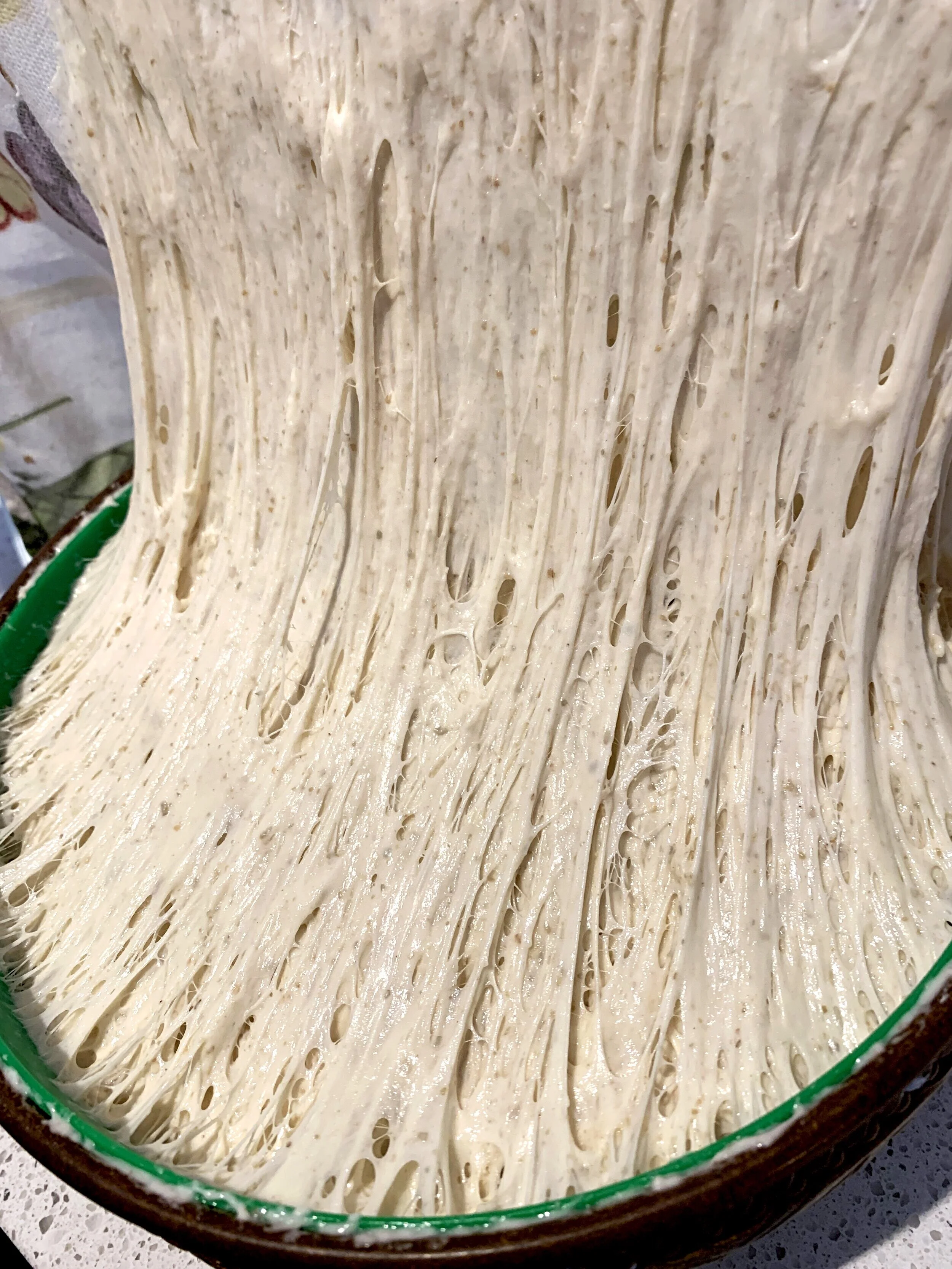Let's talk gluten - “Sourdough’s Health Benefits” series
Hello sourdough lovers! We have been quiet here in our blog recently but for a good reason, we have been busy preparing loads of cool content for our workshops. We are now back and would like to introduce our series of “Sourdough’s Health Benefits”, starting with demystifying gluten.
Gluten has been the word on the street for some time now, hated by some, indifferent to others, non-tolerable at all for some (i.e. people with Coeliac disease)… one way or another, almost everyone would have heard about gluten. This is because gluten has been associated with several gut issues such as bloating, constipation, diarrhoea and even Irritable Bowel Syndrome (IBS). Unless you have a proper intolerance to gluten such as coeliac disease (where the immune system attacks the gut’s own tissues when eating gluten) most “sensitivities” to gluten can be related to over-eating (too much, too often) gluten-containing foods combined with an already compromised gut health.
As a result, bread, which is a product that traditionally contains gluten, has been labelled as the “enemy”, and often sourdough is unfairly put in the same basket. Well, the truth is that the health issues associated with bread are mostly caused by industrial bread and not traditional bread, i.e. sourdough. This is because industrial bread is packed with additives and also relies on a speedy fermentation process that doesn’t allow for a proper modification of gluten leaving it in an indigestible form.
So, if you think you are sensitive to gluten, sourdough bread may be your best friend. Let’s find out why!
What is gluten?
Let’s start by understanding what is gluten. Gluten is a general name for proteins naturally found in wheat but also other grains like barley, rye and spelt, and it is the “glue” that gives elasticity and structure to gluten-containing foods, like bread and pasta.
Why is gluten not a problem in sourdough?
Sourdough bread making modifies the structure of the gluten proteins considered “toxic”, called gliadin and glutenin, significantly increasing gluten tolerability. This is because the process of making sourdough utilises a natural fermentation process, based on wild lactic acid bacteria (Lactobacillispp.) and yeast, which is slow and long enough (18-24 hours) to break down those proteins present in the flour. The enzymes present in the Lactobacillibacteria and yeast break down those large molecules of gluten into smaller ones, through a process called proteolysis. These smaller fragments of gluten are much more digestible and safer for the gut.
A study has shown that sourdough may even be tolerated by people with coeliac disease, although coeliac people should still be cautious as studies are not large enough to draw a solid conclusion yet. Also, always make sure you are eating a “real” sourdough bread as there are many fake options in the supermarket labelled as sourdough bread. To identify a real sourdough bread read our blog “Sourdough, how to tell if it’s the real deal”.
Thankfully, we opened our eyes on time and realised that bread is not the enemy if it’s baked traditionally and not according to unnecessary innovations (like quick-rise yeast) that have been introduced. In this way, we can not only enjoy delicious bread but also benefit from all the health benefits it brings. So, stay tuned if you would like to know more on why sourdough is good for you.
If you would like to know more about the health benefits of sourdough, start baking sourdough and do not know where to start, or if you just have some burning questions, get in touch.
Sourdough fermentation working its magic on those gluten strands

